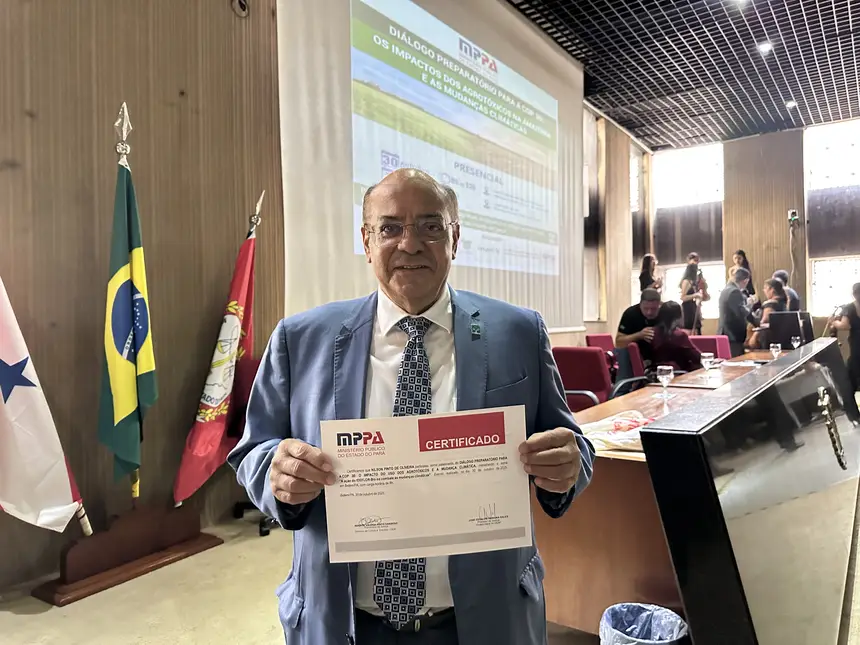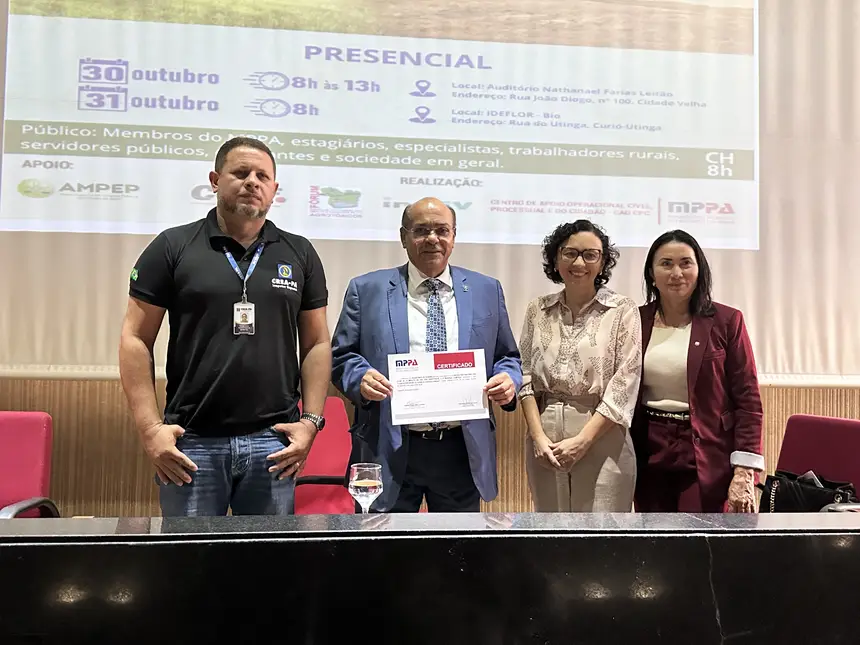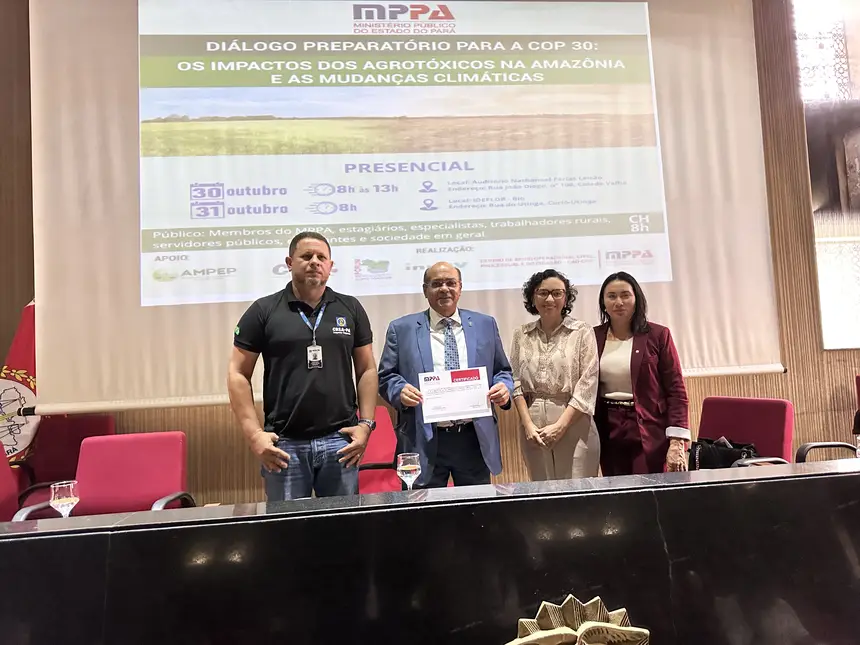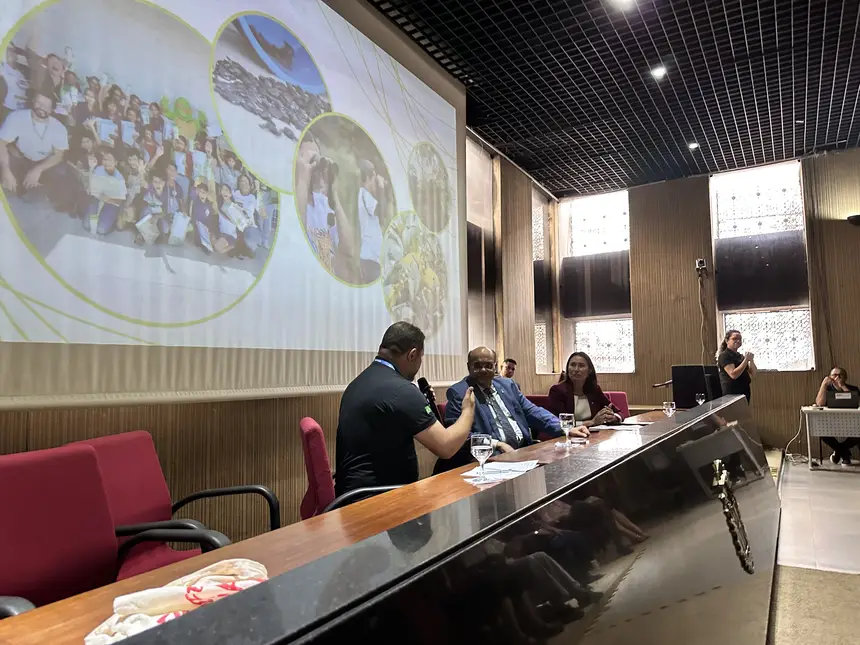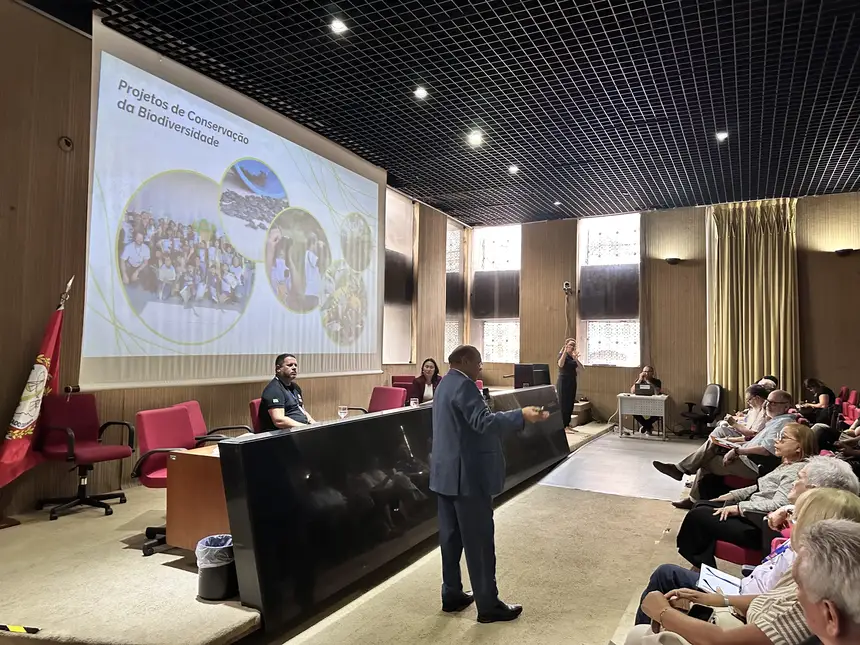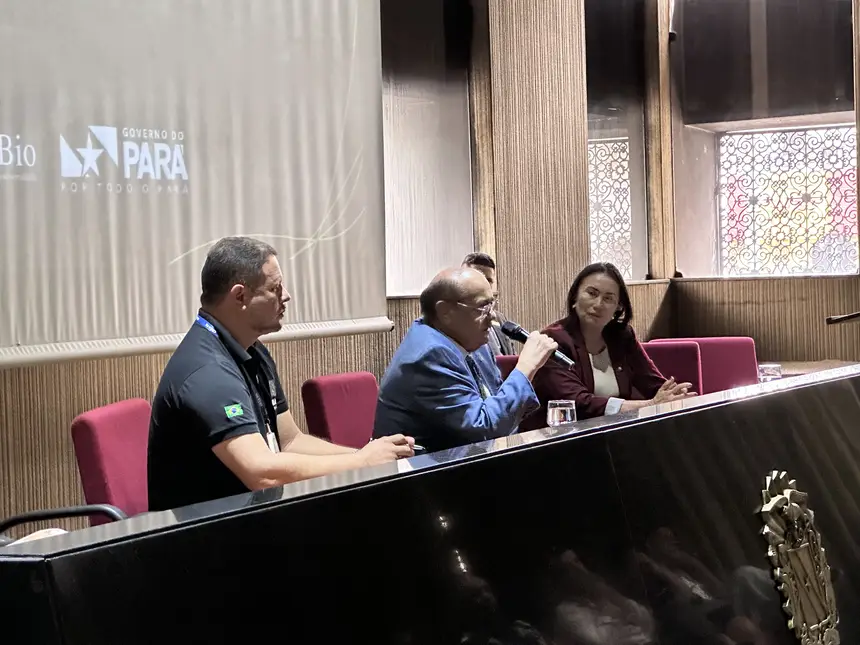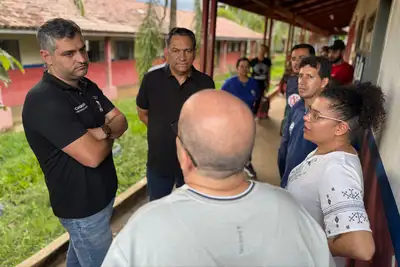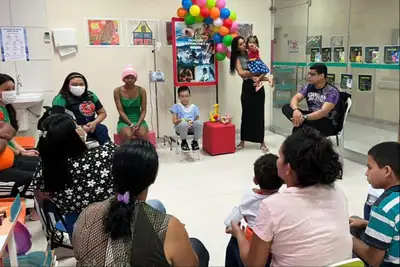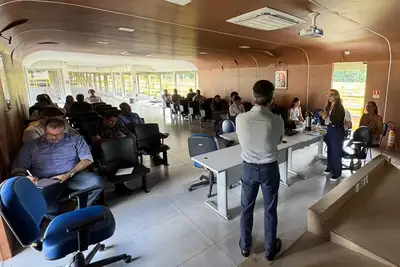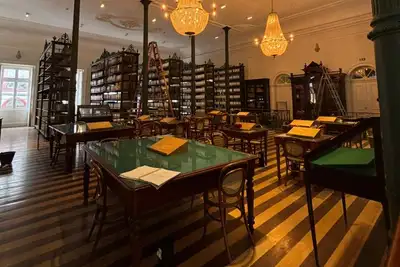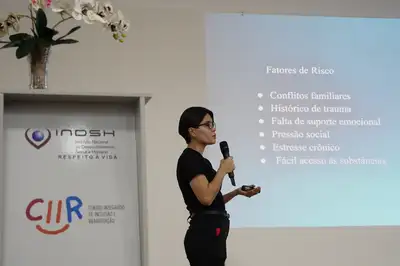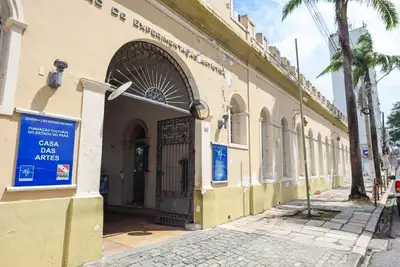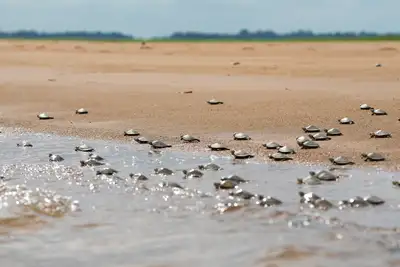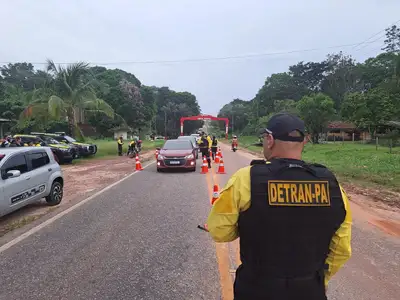Ideflor-Bio presents advances in combating climate change at MPPA event
The Institute highlighted state policies and results that consolidate Pará as a reference in biodiversity conservation and sustainable forest management
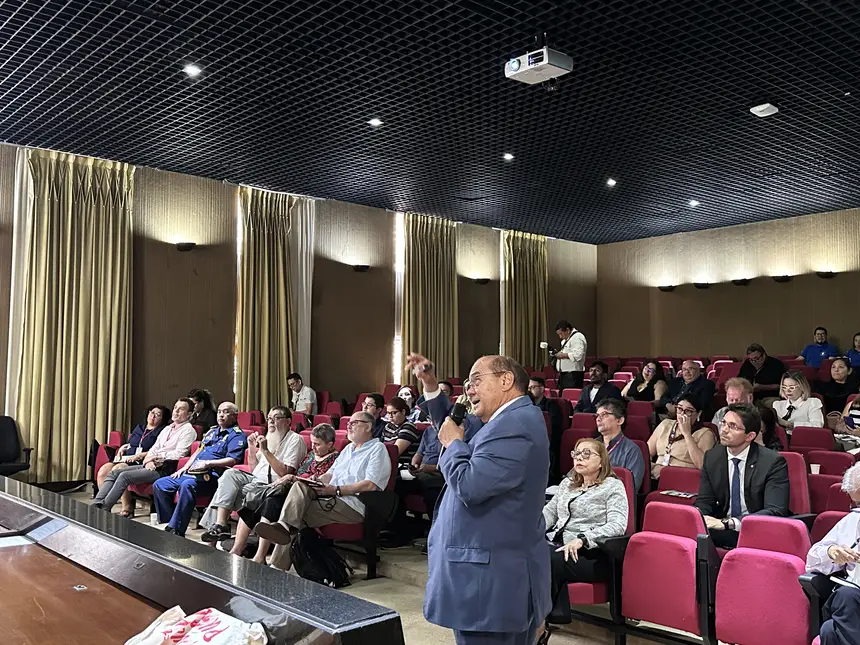
The Government of Pará, through the Institute for Forest Development and Biodiversity (Ideflor-Bio), presented, on Thursday (30), during an event promoted by the Public Ministry of the State of Pará, the main advances in facing climate change and in biodiversity conservation, in preparation for the 30th United Nations Climate Change Conference (COP30). The Institute's participation took place in the "Preparatory Dialogue for COP30: The Impacts of Pesticides in the Amazon and Climate Change," which runs until this Friday (31), at the Nathanael Farias Leitão auditorium in Belém, coordinated by the Civil, Procedural and Citizen Operational Center (CAO CPC) of the MPPA.
The president of Ideflor-Bio, Nilson Pinto, presented the lecture "Ideflor-Bio's Action in Combating Climate Change," highlighting the public policies and projects conducted by the agency. The audience consisted of members and staff of the MPPA, students, specialists, rural workers, and representatives of organized civil society.
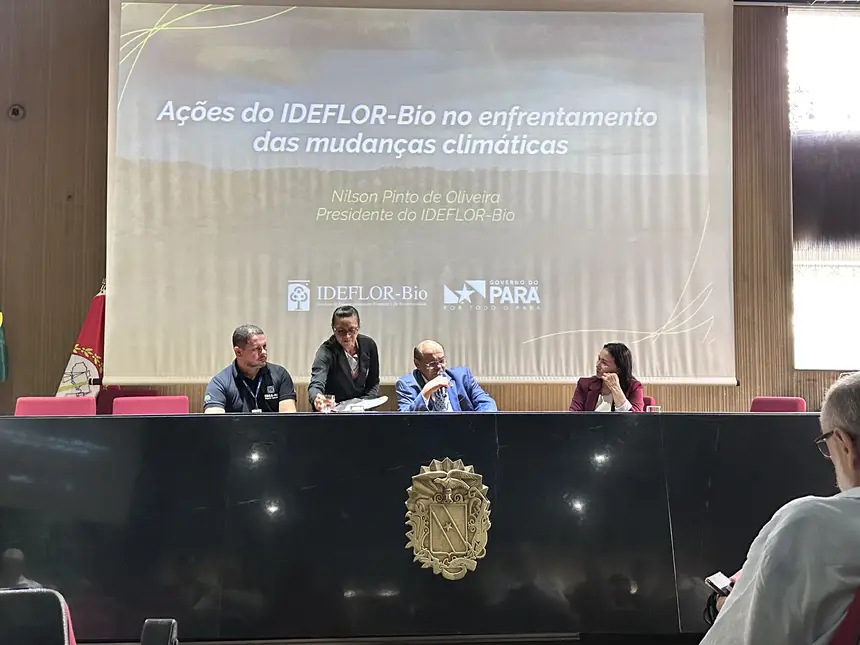
Conservation Units and Environmental Governance – Among the highlighted actions, Ideflor-Bio maintains 680 thousand hectares under forest concession regime, distributed across 11 active contracts. The state environmental agency coordinates 275 seedling nurseries in 93 municipalities, as well as the Triunfo do Xingu Restoration Unit (URTX) and conducts recovery actions on 10.3 thousand hectares, focusing on ecological restoration and biodiversity conservation in degraded areas.
Nilson Pinto highlighted that Pará currently has 29 state Conservation Units (UCs) under the management of the Institute. Together, they total more than 21.1 million hectares of protected areas. Of this total, 6.2 million hectares correspond to Integral Protection Units and 14.9 million hectares to Sustainable Use Units. “These areas are fundamental to ensure climate balance, the conservation of water resources, and the maintenance of traditional ways of life,” he emphasized.
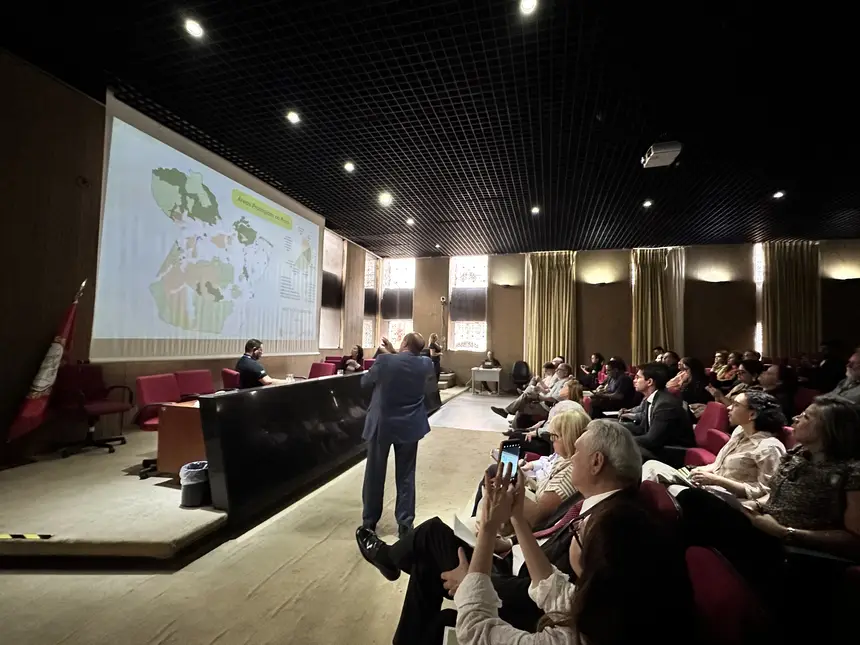
The president also presented the structural and institutional advances achieved by Ideflor-Bio, such as the establishment of management councils, the development of management plans, the creation of new conservation units, and technical support to municipalities. He highlighted the approval of the State System of Conservation Units (Seuc), which consolidates a legal and institutional framework for Pará's environmental policy and spoke about the progress in combating deforestation. “Those who follow the national news see that, over the past five years, Pará has been reducing its deforestation rates year after year. This is the result of government action, not chance,” he stated.
The president noted that, even in the face of a territory historically marked by pressures on natural resources, Pará has managed to reverse the deforestation scenario and consolidate a new environmental agenda. “For a long time, Pará was considered the largest deforester in Brazil. But, thanks to the effective action of the Government of Pará, Ideflor-Bio, and partner agencies, we have managed to reverse this trend,” he emphasized.
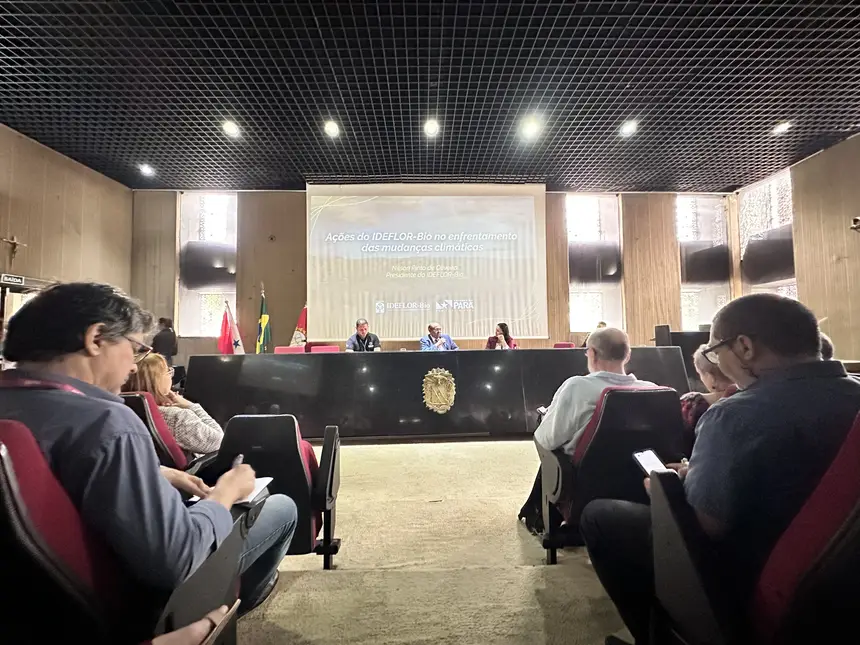
Nilson Pinto concluded his participation by highlighting Pará's leading role on the national and international stage regarding the fight against climate change and sustainable forest management. “Some ask why COP30 will be in Belém. It is not by chance. Pará has shown, with concrete results, that it is possible to reconcile economic development, environmental conservation, and climate justice. This is the legacy we want to present to the world,” he concluded.



